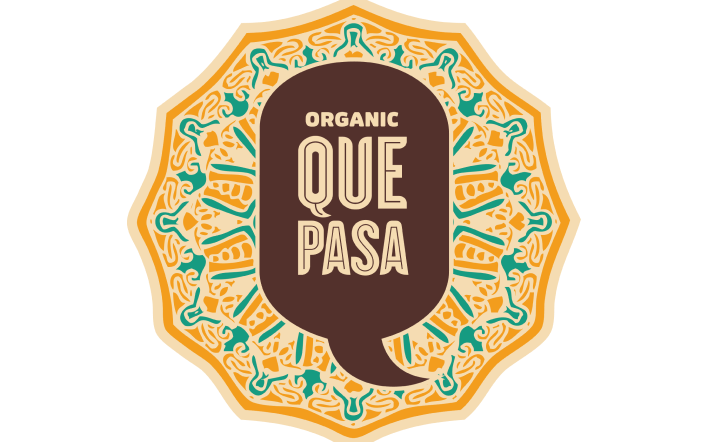When Patagonia’s founder, Yvon Chouinard, began selling climbing gear out of the back of his car in the late 1950’s, he likely could not have imagined that his business would one day become a global leader in corporate sustainability. As the
business grew from hand-forged pitons he could manufacture at a rate of two per hour to “active wear” (a clothing category Chouinard and his team helped invent) with a functional style that quickly grew popular among the active and less-active alike, his young company soon found itself navigating the tricky waters of expansion.
Sustainable Aspirations
Corporate sustainability is not an easy target. Caught between the business’ growing momentum to become a major clothing & equipment retailer, and a personal ethic to minimize the footprint on the earth - Chouinard’s choices were rarely black-and-white. To sell his product, it needed to stand out in its innovation: moisture-wicking synthetic fabrics, thermal layering, and boldly pigmented dyes all became signatures of the Patagonia line. Those same elements each came with environmental costs: heavy reliance on fossil fuels, toxic dyes, and significant pollution as a bi-product of cotton farming. While it is rarely possible to strike a perfect balance between consumer demand and environmental impact, Patagonia, a certified
B Corp, has come closer than most. In the early 1990’s, tempered by a recent recession and troubled by the prospect that their active wear could be damaging the natural world, they looked inward. The company undertook a major assessment of all fabrics in their clothing line to determine which caused the most pollution. Expecting synthetic materials to be the worst culprits, they were surprised to find them out-polluted by cotton. In response, Patagonia shifted their entire cotton line to organic within two years, a company policy still upheld over 20 years later. They phased out the most polluting dyes and have continued their quest to incorporate recycled plastics, hemp, and other sustainable materials into their fabrics. This and other self-assessments throughout Patagonia’s journey led them to draft one of their industry’s most unusual mission statements to: “build the best product, cause no unnecessary harm, use business to inspire and implement solutions to the environmental crisis.”
The Business of Activism
A band of outdoorsy types, the Patagonia team regularly interfaces with the natural world – surfing the beaches near their corporate headquarters in Ventura, California, rock climbing, trout fishing, hiking, camping, and much more. They sell clothes, but they also sell an intimacy with the outdoors: their company founded by an avid climber and fisherman, their clothing designed and tested by women and men of the same ilk. Most outdoor clothing companies have a similar story, their advances in active wear spurred by personal experiences in nature. Most stop there. In the early 1970’s, the fledgling Patagonia took its
first stand for an environmental cause that had nothing to do with fabrics or production methods. The nearby Ventura River, a former spawning site for steelhead salmon, was suffering from two dams and runoff from a sewage plant. A group of Patagonia employees – surfers who frequented a break near the river’s mouth – attended a city council meeting to resist a development plan that would further compromise that section of beach. When a young biologist joined the fight, bringing proof that eventually swayed the council not to develop, it clicked a lightbulb in Chouinard that activism was not only effective in resisting environmental degradation, but that it could enable rehabilitation of already damaged ecosystems. Since that first act of resistance, many have followed. Patagonia has built a
40-year reputation as a company that puts its money and influence behind causes it believes in,
donating 1% of its total annual sales to grassroots environmental projects, publishing essays about environmental issues in its catalogs and on the company
blog, writing
letters of dissent to Congress, and
leading an exodus of prominent companies from Utah’s Outdoor Retailer Show in protest of the state’s political unwillingness to protect its public lands. From
fair labor,
protection of public lands,
dam removal,
climate change,
early childhood education practices, and
anti-consumerismto a recent
stance against hydroponic vegetables being allowed under the organic label, they’ve honed an identity of corporate sustainability and activism that extends far beyond what is necessary to promote their product.
Sweaters for Solidarity
Although they have bucked the typical corporate approach of mass appeal via neutrality, Patagonia has suffered little backlash. After President Trump’s December 4, 2017
announcement that he would considerably shrink two of southern Utah’s wildest national monuments and open them up to resource extraction, Patagonia filed a lawsuit and transformed their website’s landing page into a black screen that read, “The President Stole Your Land.” Sales following the announcement
bumped significantly. By taking a stand – exerting their considerable cultural and financial influence on issues that threaten their company ethic – they’ve turned the purchase of a sweater into an act of solidarity, and themselves into an ally in any number of social and environmental causes.








